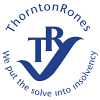Q. Is a Debt Relief Order right for me?
Find out what it is, how it works, and see answers to FAQ's below:
Q. What is a Debt Relief Order?
A debt relief order, also known as DRO, is an order granted by the Insolvency Service. It can help if you are struggling or unable to pay your debts and live in England & Wales.
An alternative to bankruptcy if you are on a low income
A debt relief order could be an alternative to bankruptcy, if you are on a very low income and have no more than £300 worth of assets. A DRO is cheaper than bankruptcy and doesn't involve going to court. We should advise that there is no official scheme called a 'debt settlement order'.
Debt relief orders are not suitable for everyone. Before applying for a debt relief order speak to a debt advisor from Debt Advisory Line who will assess your financial situation and recommend a suitable debt plan.
Q. How does a Debt Relief Order work?
A debt relief order will be issued and is administered by an Official Receiver (OR). During a 'Moratorium' period which usually lasts 12 months your creditors can take no enforcement action against you to reclaim debts. Once the order is made the OR will inform all your creditors of this for you. In addition:
- The OR will also investigate whether you have made any transactions at below the value that would be expected (selling assets for less value than their value)
- You will have a duty to co-operate with the OR. This includes keeping records, and informing the OR of any changes in your income or new assets, (including windfalls, money left in a will and any lump sum). If you fail to do this then your order could be revoked and you would then need to start repaying your debts.
- Your bank account will not be frozen, but if you have an overdraft you may need to set up a new basic bank account as it is unlikely that your bank will allow you to continue.
- A debt relief order does not automatically freeze interest and charges however these will be written off on your discharge
- The Official Receiver may decline your debt relief order application. (They will advise you of the reasons).
- Creditors can object to a debt relief order. If the OR feels your behaviour has been dishonest or your conduct poor during the debt relief order period, then the court has power to make a Debt Relief Restriction Order (DRRO) against you, the restrictions of which could last up to 15 years.
Applications for a Debt Relief Order can only be made through a government approved intermediary such as the CAB. Debt Relief Orders are not suitable for everyone. Before applying for a Debt Relief Order speak to a debt advisor from Debt Advisory Line.
Q. What are the advantages of a Debt Relief Order?
Once we have reviewed your finances we may recommend a debt relief order as the best debt solution for you. The advantages are:
- All unsecured debts included in the DRO will be cleared (written off) after 12 months.
- Repay only what you can afford.
- Quicker to set up than bankruptcy.
- A DRO is Cheaper than bankruptcy and doesn't involve going to court
- Stop all creditor phone calls and letters and prevent your lenders from enforcement action.
- You become in control of your debts without a loan
Q.What are the disadvantages of a Debt Relief Order?
The effects of a DRO are similar to bankruptcy:
- Your DRO will remain on public record for 15 months (or 3 months after your discharge) and your credit record for 6 years.
- You may not be involved with a limited company or act as a director without court permission
- You must continue to repay priority debts such as household bills and any secured loans.
- You may not be able to obtain credit during the DRO and may have to return any goods bought with hire purchase or a conditional sale agreement.
- You could have problems securing credit in the medium to longer term
- If you can get credit over £500 you must tell the lender you have a DRO
- You may also be unable to practice certain professions.
Q: Will I qualify for a Debt Relief Order?
If you are struggling to repay debt and have a very low income a debt relief order could be the most suitable plan for your debt problems. For people living in England and Wales a DRO can be issued to people who meet certain criteria:
- Unable to pay debts, with less than £15,000 unsecured debt
- Only available when your spare money (disposable income, after tax, national insurance & living expenses) is less than £50 per month.
- You must not be involved in any other insolvency procedure, or have had a DRO within the last 6 years.
- The total value of your assets is less than £300
- Total private pension fund is less than £300
There are some assets which are not considered for inclusion in the value of your assets:
- A car, although its value must be less than £1,000 unless it has been adapted for a disability
- Household equipment and items i.e. furniture, bedding and clothing
- Tools of your trade, books and other equipment you need for work.
Our advisor will help you take into account all your household income and outgoings. Once you've paid off all your bills, if you've £50 or less remaining you may be able to apply for a DRO, if you meet all other conditions.
When applying for, or during, a DRO, it is important you do not try to hide information or dispose of assets in order to take advantage of the scheme. If you are caught abusing the system, there are civil and criminal penalties
We have experience in other debt plans, so if you do not qualify for a DRO we can still help you get back in control of a debt problem.
Q. What type of debts can I include in a Debt Relief Order?
The following debts can be included in a debt relief order:
- Unsecured Loans
- Credit cards and Store cards
- Catalogue debt
- Rent, utilities, telephone and council tax
- Hire purchase or conditional sale agreements
- Overdrafts
There are certain types which cannot be included such as:
- Court fines and confiscation order
- Child support and maintenance
- Student loans
Q: What happens after the Debt Relief Order finishes?
If the DRO is satisfied you have cooperated with the order you will be discharged. This as usually after 12 months, at which point all debts listed in your DRO will be written off. You will still be liable to pay any debts outside the order (such as secured debts).








